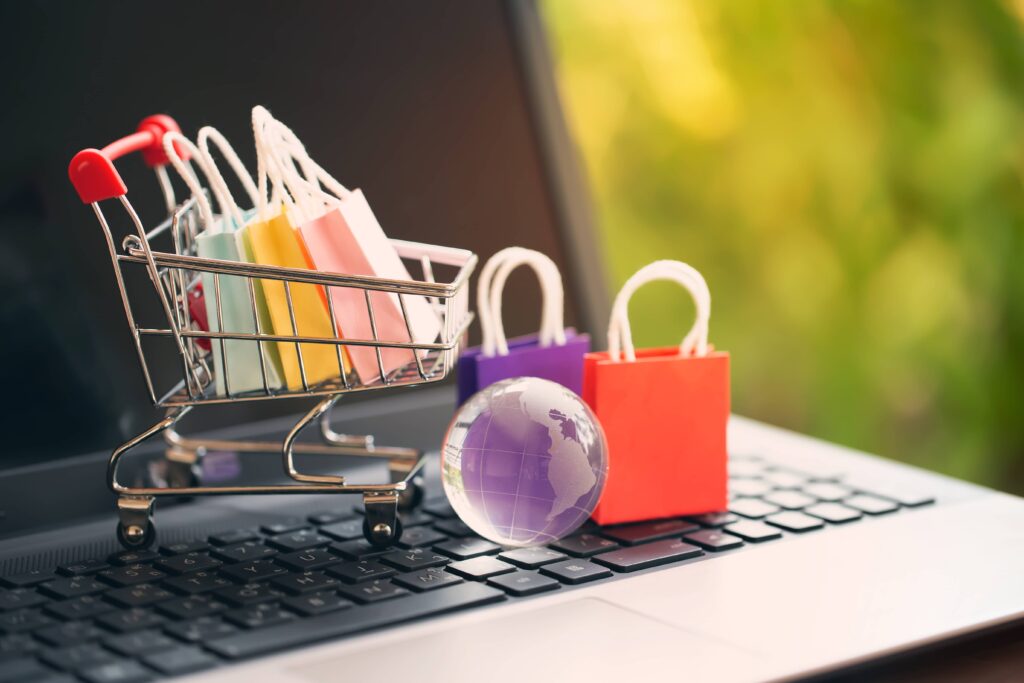Oh, the bitter irony.
On one hand, social distancing and #WFH means we don’t need to dress up or make up for the office. On the other hand, colleagues can now see us larger than life when we hook up on screen. So, how’s your cameo area? Perfected your lockdown look? Even before the coronavirus pandemic, WGSN had identified ‘above the keyboard dressing’ as a major trend for 2020.
Social lives have moved online as well. Friends getting together via video for happy hour to share a ‘quarantini’, a fun quiz or exercise class is the new normal.
Letting it all go to seed is not really an option. Looking and feeling good is important for wellbeing, especially in anxious times. But we’re going to have to do it ourselves. Google hits for ‘cut own hair’ spiked last month. And check out #maskmakeup on Instagram to see how to make up when wearing a face mask.
Beauty and personal care brands have been quick to step into the gap left by widespread closure of stores, hair salons, nail bars and spas. Bobbi Brown Live Chat answers customers’ beauty and skincare questions and L’Oréal explains how to self-tan. Millennials can go to Glossier for advice on ‘How to maintain your salon services at home’ and Gen Z (the biggest beauty spenders globally according to A.S. Watson) to Sephora for a tutorial on everyday looks or Ulta for eyebrow definition. Remington is offering advice on cutting hair and beards on its Instagram account.
It’s also a good opportunity to encourage customers with time on their hands to experiment. Maybe a fresh skincare regime (a growth segment of the market), home spa treatment or French braids.
Celebrities and influencers are doing their bit. You can get Kim Kardashian West’s Smokey Eye Instagram tutorial, do nail art with Miley Cyrus or learn how Teri Hatcher covers up grey hair on YouTube. (By contrast, red carpet regulars such as Julia Roberts and Jennifer Lopez posted photos of themselves make up free one day in March.)
Influencers carry huge clout. In 2019 research by Edelman, 63 percent of respondents aged 18-to-34 trust what an influencer says about a brand more than what the brand says about itself in advertising. Estee Lauder understood this power of third party opinion decades ago. She believed that women who liked her products would spread the word: “telephone, telegraph, tell a woman”.
With cosmetic counters and stores shut down the only way to sell beauty and personal care merchandise is online. But for many beauty customers, that’s not the channel of choice. According to Nielsen, while the top 20 cosmetics brands capture 90 per cent of the dollars going to brick-and-mortar retailers, those same companies capture just 14 per cent share online. Brands will need to communicate and connect with shoppers who may be visiting their sites for the first time. Social proof can help.
Social proof is another type of influencer. It works on the psychological principle that we’re all influenced by others and are more likely to purchase an item if we think people like us have bought it. At a time when so many people are having to economize, it’s important that brands and retailers help customers make the right decision, buy the right lipstick, hair colour or cologne that will give them pleasure (and they don’t have to leave the safety of home to return items).
Social proof also promotes a sense of community. You can’t go to the store with a friend, but you can see that other people are also shopping online around you – ‘23 people are looking at this right now’. That builds confidence in the overall online experience for newbies. Social proof can also reassure, ‘Great choice: 167 sold in the last 24 hours’; encourage experimentation, ‘Trending now: 48 people have this in their basket’ and inform, ‘only 23 left in stock today’.
You don’t have to be a digital born beauty brand to use social proof. The look and feel of messaging can be crafted to match every kind of beauty brand value and identity, every kind of customer.
We don’t know how long the current restrictions on going out will last. While shoppers can’t get to the store, the store must go to the customer. Social proof can help give every customer a positive online experience and stay connected with their favorite brands.
Because beauty and personal care retailers are going all out to strengthen their online operations Taggstar has extra resources in place and is prioritizing onboarding new clients. Our specialists can create and test messaging and get it up and running on your website in days. In short, we’ll offer every support so you can look after all your customers.



